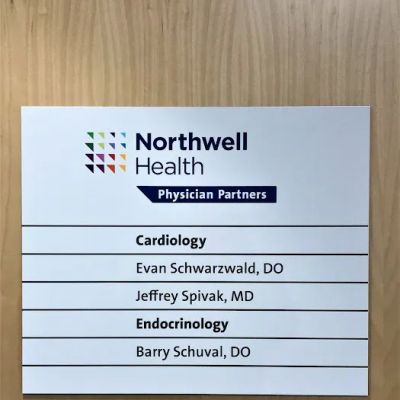- why-lifestyle-change-is-key-to-heart-disease-management
- building-a-personalized-lifestyle-modification-plan
- real-life-story-of-linda-s-turnaround
- long-term-strategies-for-heart-health-success
- getting-the-right-support-and-resources
Why Lifestyle Change Is Key to Heart Disease Management
When it comes to managing heart disease, medication alone isn’t enough. Doctors and cardiac specialists increasingly emphasize the power of lifestyle modification plans to reduce symptoms, improve outcomes, and even reverse early signs of heart trouble. What we eat, how we move, how we handle stress, and even how much sleep we get all affect the heart more than most people realize.
Modern heart disease management goes far beyond the pill bottle. Patients are now encouraged to view their daily routines as medicine—every walk, every salad, every deep breath contributes to healing. Understanding how to personalize these habits is what truly makes the difference between just surviving and fully living with heart disease.

Building a Personalized Lifestyle Modification Plan
1. Nutrition That Supports the Heart
One of the most impactful changes heart disease patients can make is in their diet. Reducing saturated fat, sodium, and added sugars while increasing fiber, omega-3s, and plant-based meals can stabilize cholesterol and blood pressure levels. The Mediterranean diet and DASH diet are both heavily researched and commonly recommended by cardiologists.
But personalization matters. Some patients find success with gradual changes—swapping red meat for fish once a week, or replacing soda with sparkling water. A good plan meets you where you are, not where a health app says you “should” be.
Atlanta Heart Specialists
atlanta heart specialists
4375 Johns Creek Pkwy #350, Suwanee, GA 30024, USA

2. Safe and Sustainable Physical Activity
Exercise doesn't have to mean marathons or spin classes. Walking for 30 minutes five times a week is one of the most powerful heart protectors available. For patients recovering from a cardiac event, supervised rehab programs offer monitored movement routines tailored to individual risk levels.
Start with what feels doable. Even 10-minute walks after meals can improve insulin sensitivity and vascular function. The goal is consistency, not perfection.
3. Stress Management and Mental Resilience
Chronic stress has been linked to increased heart rate, elevated blood pressure, and poor recovery outcomes. Mindfulness, therapy, yoga, and even creative hobbies can serve as valuable outlets for emotional regulation.
One patient might respond to meditation apps, while another prefers gardening or playing with a grandchild. The key is reducing cortisol levels through whatever method brings joy and calm.
4. Sleep Hygiene and Recovery
Sleep is often overlooked, but poor rest can raise blood pressure and weaken the immune system. Heart disease patients should aim for 7–8 hours per night and establish a consistent sleep schedule.
Practices like shutting off screens an hour before bed, keeping the room cool, and avoiding caffeine after lunch can make a huge difference. In cases of sleep apnea, seeking professional treatment is crucial for both heart and brain health.
Real-Life Story of Linda’s Turnaround
Linda, a 63-year-old retired schoolteacher from Florida, was diagnosed with congestive heart failure after years of battling high blood pressure. Her doctor gave her a list of medications—but also a lifestyle prescription: daily walks, a sodium-restricted diet, and stress reduction through journaling and breathing exercises.
At first, it felt overwhelming. She had never cooked without salt, and walking more than five minutes winded her. But she started small—replacing canned soups with homemade veggie stews and taking her dog on short strolls twice a day.
Six months later, Linda had lost 18 pounds, her blood pressure had stabilized, and her cardiologist reduced her medication. Her biggest win? Feeling in control again. She now leads a local support group for women with heart disease and credits her lifestyle plan with saving her life. She also found her nutrition supplements and low-sodium recipes through HeartCare Hub, which she calls her “lifeline for heart-friendly living.”
Long-Term Strategies for Heart Health Success
1. Make Habits Enjoyable
Willpower fades, but routines rooted in enjoyment stick. Find ways to make healthy food tasty, movement fun, and self-care rewarding. Cooking classes, nature walks, or group fitness can shift your perspective from discipline to delight.
2. Track Progress Without Obsession
Use journals, apps, or simply a weekly check-in with yourself to reflect on changes. Celebrate small wins, like choosing fruit over dessert or completing a week of workouts. Progress may be slow, but it builds over time.
3. Involve Loved Ones
Social support is a powerful motivator. Ask your partner to walk with you, your kids to help cook heart-healthy meals, or a friend to join you in a meditation challenge. Building community around your lifestyle change makes it less of a chore and more of a shared goal.
Getting the Right Support and Resources
Successful lifestyle modification plans don’t happen in isolation. Whether it's guidance from a registered dietitian, check-ins with a cardiologist, or simply having access to heart-friendly grocery lists, support systems are vital. Online platforms like HeartCare Hub offer practical tools, personalized product recommendations, and educational content curated specifically for heart patients.
Remember: heart disease isn’t a fixed sentence—it’s a turning point. With the right plan, support, and mindset, every day becomes a step toward healing and strength. And you don’t have to walk that road alone.





















Deborah Heart and Lung Center
deborah heart and lung center
200 Trenton Rd, Browns Mills, NJ 08015, USA